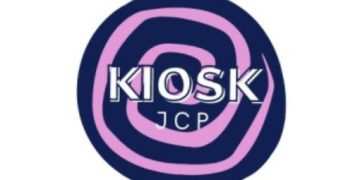For many people, using the Webster on-line dictionary is a simple way to get a quick definition of a word. However, for others, it can be a bit more difficult. Regardless, if you haven’t yet tried the Webster on-line dictionary, you should at least give it a try. The reason behind this is because the dictionary is a powerful tool. It helps to define words and their meanings in an easy-to-use format, and it’s great for learners of all ages.
History of dictionaries
The history of Webster on line dictionary can be traced back to the time when Noah Webster published his first dictionary. He was an American journalist, lexicographer, lawyer, and schoolmaster. It was his efforts to standardize the language of American culture that eventually led to the establishment of the American Dictionary of the English Language.
Webster’s dictionary was the foundation of a line of dictionaries that ran nearly uninterrupted for two centuries. After his death, his dictionaries were updated and innovated by other lexicographers.
As a result of his scholarly work, Noah Webster was viewed as one of the fathers of American scholarship. He was an influential writer, political activist, and language reformer. Among his many contributions to American culture, Webster helped to advance copyright law and the education of the public.
Third New International
The Webster’s Third New International Dictionary is a groundbreaking achievement in the field of lexicography. It is a landmark book for its scope, encyclopedic nature, and illustrative material. Although the dictionary is a two-volume work, it is unabridged and contains 476,000 entries, over 200,000 illustrative quotations, and more than 3,000 illustrations.
The dictionary was published in 1961. Its publisher is Merriam-Webster. It is considered the standard of scholarship. In addition, the dictionary is considered a leading reference for contemporary American English. Featuring more than four hundred thousand etymologies, the dictionary is considered the most extensive record of modern English language usage.
Merriam-Webster’s commitment to excellence began with the first dictionary in 1847. Over the years, the company has made several updates.
Advanced Learner’s
The Merriam-Webster online dictionary is a plethora of resources, from the basic dictionary to the advanced Learner’s Webster. It is not only one of the most comprehensive dictionaries of its kind, but also a resource containing the most popular and misunderstood English vocabulary words, which are not always covered in traditional English language textbooks.
The online dictionary’s Visual Dictionary, which is arranged in 15 themes, is one of the most user-friendly and aesthetically pleasing. While the main content is a dictionary, it also contains more than 6,000 images and words that define a variety of details. Although it may be a little too much gimmickry for the average English learner, it’s a useful reference tool.
Aside from the many nifty features, the most notable feature is the Advanced Learner’s Webster. This is a great tool to use in a classroom, or to use on a daily basis for your own amusement. One of the best things about this resource is that you can easily change the dictionary to accommodate newer and more up-to-date entries.
Urim and thummim
The Urim and thummim in Webster on line dictionary are two items which were known as a means of obtaining oracles. These were used by priests to find the will of God. They were also used to determine the innocence or guilt of a party suspected of wrongdoing. In general, their answers were yes or no.
Traditionally, the Urim is a synonym for light. It is a word which derives from the Hebrew word arar, meaning “curse.” The same root is used to create the word tammam, which means “to be whole.” But, a more precise explanation is that the Urim means “guilt” and the Thummim means “perfections.”
Urim and thummim are often referred to as the crowning glory of the tribe of Levi. This title is found in Deuteronomy 33:9 and in the blessings of Moses. However, they are not mentioned after the time of King David.
Crowdsourcing
Merriam-Webster has been a publisher of dictionaries for over two centuries. Today, its publishers are trying to figure out the digital world.
One of their new projects is a crowdsourcing on line dictionary. It’s part of a Cultureomics project. The company says it’s able to collect nearly 20,000 suggestions from users since 2005. This isn’t the first time a dictionary has been crowdsourced.
But it’s the first time a major dictionary has been crowdsourced in the United States. Collins English Dictionary added the feature three years ago.
Traditionally, dictionaries have had experts as gatekeepers. But the Internet has made it easier for anyone to create a digital version of a lexicon.
Merriam-Webster’s latest effort is called “Wordhunt.” Current editor in chief John Simpson has launched the campaign to drum up early examples of high-profile words. Users can post their submissions on the Open Dictionary page.




















































